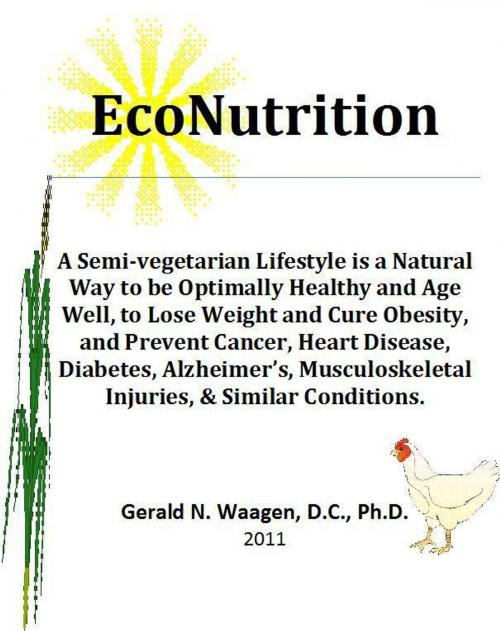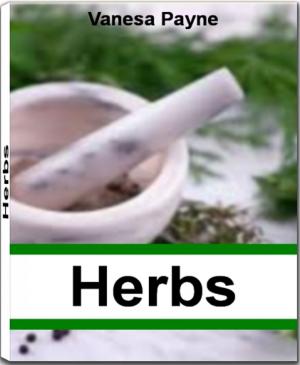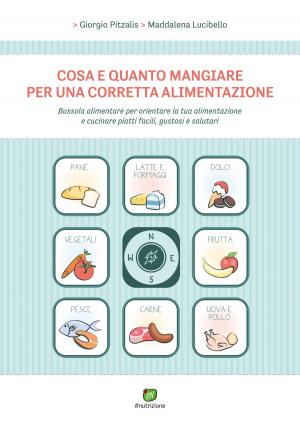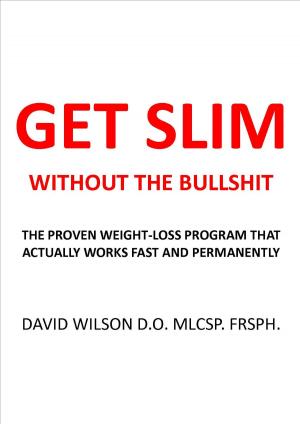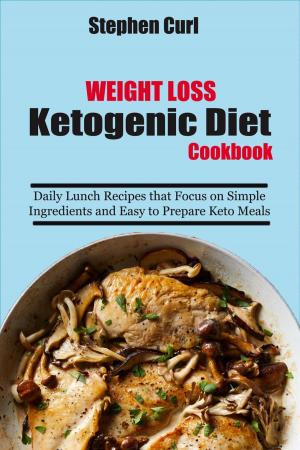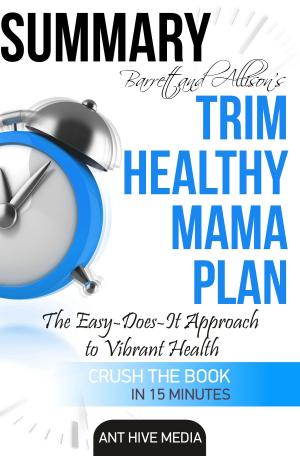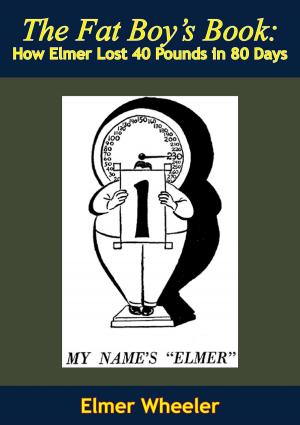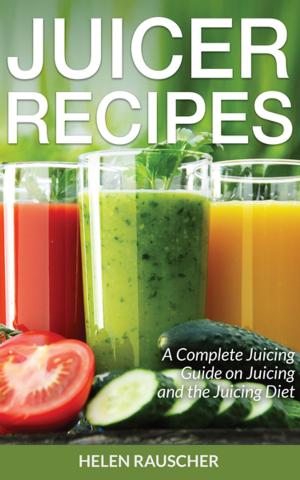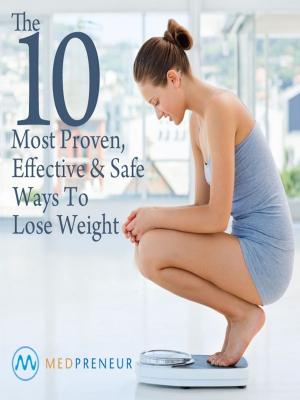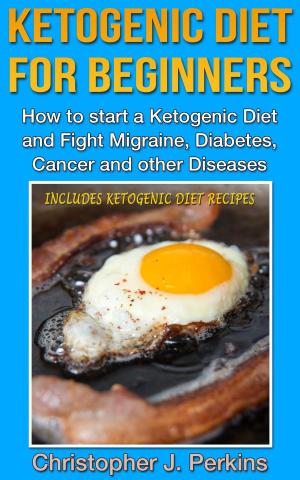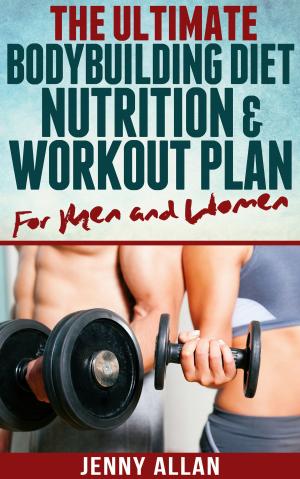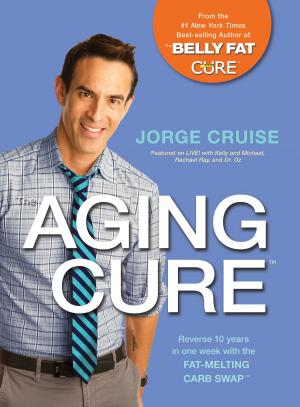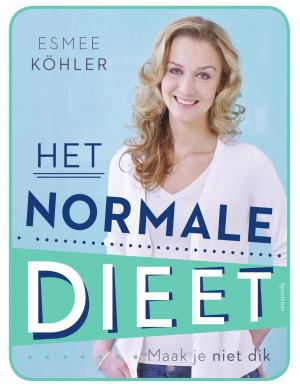EcoNutrition:A Semi-vegetarian Lifestyle is a Natural Way to be Optimally Healthy and Age Well, to Lose Weight and Cure Obesity and Prevent Cancer, Heart Disease, Diabetes, Alzheimer’s, Musculoskeletal Injuries & Similar Conditions.
Nonfiction, Health & Well Being, Medical, Patient Care, Nutrition, Health, Nutrition & Diet, Diets| Author: | Gerald Waagen | ISBN: | 9780615548517 |
| Publisher: | Gerald Waagen | Publication: | September 30, 2011 |
| Imprint: | Smashwords Edition | Language: | English |
| Author: | Gerald Waagen |
| ISBN: | 9780615548517 |
| Publisher: | Gerald Waagen |
| Publication: | September 30, 2011 |
| Imprint: | Smashwords Edition |
| Language: | English |
A practical semi-vegetarian way of eating is described that will intentionally enable you to thrive, be optimally healthy, age well, lose weight to cure obesity, prevent cancer, diabetes, heart disease, Alzheimer’s, and musculoskeletal injuries. The plan includes 4 daily meals, 3 mini-meals and a main meal dinner. The secret to the success is slick short-cut tricks to get healthy food on the table in minutes. The rice cooker, microwave oven, slow-cooker, and wok are much-used tools in the modern semi-vegetarian kitchen where the Asian stir-fry is the commonest method of making one-pot dishes and entrees for dinner. It’s probably not coincidental that a style of eating that is optimally healthy for us is also best for the planet and our concerns about the environment. The author is a scientist, doctor, and college professor who had a heart attack and developed a lifestyle solution to his health problem that might work for others. He lost 40 pounds in 4 years and that is considered to be a healthy change. If you have to lose 40 pounds in 4 days this plan will not help you. The proposed plan is neither a fad diet nor an argument for tasteless unpleasant ‘health food.’ Good foods can be extraordinarily elegant and ample. We do not need to suffer to be healthy. Shopping can be accomplished in about an hour a week using 5 simple rules. The plan is based on a set of 15 principles.
Fifteen Healthy Eating Principles and a Sustainable Daily ‘Diet’ Plan
1.You need a healthy lifestyle. If you eat too much you will suffer from chronic diseases. And yo-yoing , i.e., go on a diet, gorge, diet, gorge, etc., is a fundamentally unstable & unhealthy lifestyle. Eat 3 small meals (breakfast, lunch, evening snack) and a 4-course dinner daily.
2.Plan your meals. Get in the habit of making a menu and shopping for food once a week. Store enough common ingredients to eat for a month.
3.Eat a low-cost 300-400 calorie whole-grain breakfast with 2+ fruits.
4.Have a low-cal (300-400 calories) salad, sandwich, or soup for lunch.
5.Enjoy a decent 4-square semi-vegetarian dinner of 700-800 calories with 2 or more vegetables.
6.Have an evening snack mini-meal of 300-400 calories. Carbs are a snack “sometimes.” Usually eat fruit, veggies, non-fat yogurt, etc.
7.Value home-cooking; shun dastardly fast-foods and industrial meals.
8.Drink 8 cups or 2 liters of water daily, more is fine. All recreational drinks including soda pop, caffeinated and alcoholic beverages are ‘diuretics’ that dehydrate you. If you drink those you need extra water.
9.Eat a reasonable portion; use a smallish plate; don’t go back for ‘seconds.’ It’s easier if you don’t eat in the kitchen where the food is.
10.Don’t eat too much protein, 2 ounces or 50 grams daily is ample, eat fish twice a week.
11.Eat 5-9 or more servings of a variety of vegetables and fruits every day.
12.Whole-grain complex carbohydrates, e.g., brown rice and whole wheat bread, are our best source of energy. Eat enough but not too much.
13.Minimize fats and oils including fried foods, butter, margarine, eggs, lard, etc. Buy non-fat dairy products. Cook with small amounts of heart-healthy oils like canola and olive. Never buy or eat ‘trans-fats.’
14.Minimize salt and processed foods. You need about 1500 milligrams (mg) of sodium daily; you get that much in 1 teaspoon of table salt, 2 tablespoons of soy sauce, or 1.2 tablespoons of fish sauce. Read the label and buy low-sodium (300 mg or less per serving) ingredients. Take the salt shaker off the table.
15.The AHA (8/24/09) recommendation is to reduce daily refined sugar consumption to 100 calories for women and 150 calories for men. A typical 12-ounce soda pop contains 130 calories of sugar. Snack on fruits like grapes, carrots, and celery, instead of candy and chips.
A practical semi-vegetarian way of eating is described that will intentionally enable you to thrive, be optimally healthy, age well, lose weight to cure obesity, prevent cancer, diabetes, heart disease, Alzheimer’s, and musculoskeletal injuries. The plan includes 4 daily meals, 3 mini-meals and a main meal dinner. The secret to the success is slick short-cut tricks to get healthy food on the table in minutes. The rice cooker, microwave oven, slow-cooker, and wok are much-used tools in the modern semi-vegetarian kitchen where the Asian stir-fry is the commonest method of making one-pot dishes and entrees for dinner. It’s probably not coincidental that a style of eating that is optimally healthy for us is also best for the planet and our concerns about the environment. The author is a scientist, doctor, and college professor who had a heart attack and developed a lifestyle solution to his health problem that might work for others. He lost 40 pounds in 4 years and that is considered to be a healthy change. If you have to lose 40 pounds in 4 days this plan will not help you. The proposed plan is neither a fad diet nor an argument for tasteless unpleasant ‘health food.’ Good foods can be extraordinarily elegant and ample. We do not need to suffer to be healthy. Shopping can be accomplished in about an hour a week using 5 simple rules. The plan is based on a set of 15 principles.
Fifteen Healthy Eating Principles and a Sustainable Daily ‘Diet’ Plan
1.You need a healthy lifestyle. If you eat too much you will suffer from chronic diseases. And yo-yoing , i.e., go on a diet, gorge, diet, gorge, etc., is a fundamentally unstable & unhealthy lifestyle. Eat 3 small meals (breakfast, lunch, evening snack) and a 4-course dinner daily.
2.Plan your meals. Get in the habit of making a menu and shopping for food once a week. Store enough common ingredients to eat for a month.
3.Eat a low-cost 300-400 calorie whole-grain breakfast with 2+ fruits.
4.Have a low-cal (300-400 calories) salad, sandwich, or soup for lunch.
5.Enjoy a decent 4-square semi-vegetarian dinner of 700-800 calories with 2 or more vegetables.
6.Have an evening snack mini-meal of 300-400 calories. Carbs are a snack “sometimes.” Usually eat fruit, veggies, non-fat yogurt, etc.
7.Value home-cooking; shun dastardly fast-foods and industrial meals.
8.Drink 8 cups or 2 liters of water daily, more is fine. All recreational drinks including soda pop, caffeinated and alcoholic beverages are ‘diuretics’ that dehydrate you. If you drink those you need extra water.
9.Eat a reasonable portion; use a smallish plate; don’t go back for ‘seconds.’ It’s easier if you don’t eat in the kitchen where the food is.
10.Don’t eat too much protein, 2 ounces or 50 grams daily is ample, eat fish twice a week.
11.Eat 5-9 or more servings of a variety of vegetables and fruits every day.
12.Whole-grain complex carbohydrates, e.g., brown rice and whole wheat bread, are our best source of energy. Eat enough but not too much.
13.Minimize fats and oils including fried foods, butter, margarine, eggs, lard, etc. Buy non-fat dairy products. Cook with small amounts of heart-healthy oils like canola and olive. Never buy or eat ‘trans-fats.’
14.Minimize salt and processed foods. You need about 1500 milligrams (mg) of sodium daily; you get that much in 1 teaspoon of table salt, 2 tablespoons of soy sauce, or 1.2 tablespoons of fish sauce. Read the label and buy low-sodium (300 mg or less per serving) ingredients. Take the salt shaker off the table.
15.The AHA (8/24/09) recommendation is to reduce daily refined sugar consumption to 100 calories for women and 150 calories for men. A typical 12-ounce soda pop contains 130 calories of sugar. Snack on fruits like grapes, carrots, and celery, instead of candy and chips.
